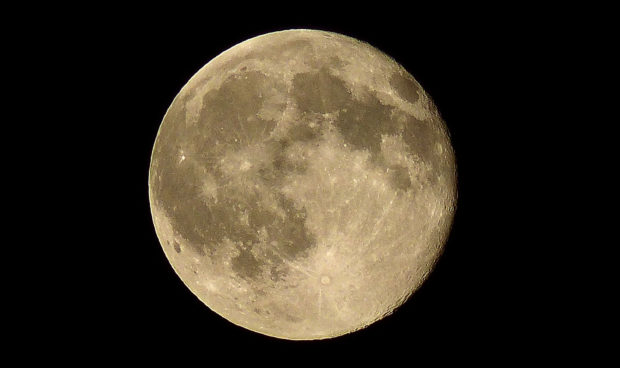You have no items in your cart. Want to get some nice things?
Go shopping
The Princess Xiang sighed. “I was thinking about the moon,” she said. “I often think about the moon. I wonder how I may sail to her. I am told it can be done. Some say it has been done, but of that I am not so sure.”
Zheng, the governor of the province replied in his measured tone. He was said to give wise counsel. “Madam, believe me: it is better not to wish for impossible things. No one can imagine the world seen from the stars, for no one has found the path that leads beyond the mountain heights, nor the trail in the wastes that surely leads heavenward.”
If the wise, old governor believed that would end the matter he had misjudged the Princess Xiang’s resolve to learn more of the stories that were told of travellers beyond this world. She replied, “Then there is a challenge for someone who has the strength of mind and heart to take up the challenge.”
Zheng looked out towards the mountains. He took a deep breath before replying. “My dear Princess, it is wise not to go beyond the limits of the world we know. Of these things there are whispers. Travellers who leave never return. Rumours are many and as varied as the flowers in the imperial gardens. Believe me, my child, it is better to remain where we are. Walls are built for a reason.”
“Then why, dear Zheng, are we alive?” asked the princess. “Surely if we did not dream we would turn to dust? I see from my window in the street below many wandering with that dusty look about them. I do not want to be like them.”
The governor Zheng said nothing more that day. He allowed for time to pass, time in which the princess might reflect on the dangers of such curiosity. It was true he had heard of wanderers onto the sacred mountains. They were the ones who disappeared. A rescue party would go in search of them, only to disappear also. There were places where it was a deadly trap to venture. The moon was for admiring, not for visiting. It was better to leave the moon to the astrologers who understood its influence, and to poets who understood its charms. For the curious minds it was wise to think only of earthly things within the realm of the permissible.
When the governor Zheng was young (as once he had been) he dreamed of travelling to the moon and even the stars. He had heard talk of a road that stretched out beyond the bounds of the city and far into the countryside for many days until there was only wilderness. There eventually one would reach a fork with a road to the right and a road to the left. One way went into the realm of the heavens. There it was possible to walk to the moon.
The terrible dilemma was that the other way led to hell. Take that road and night felt immediately. Soon the unfortunate traveller was behind an enormous iron door that slammed shut before escape was possible. The door was immovable. The traveller was trapped in the darkness where the heat was fierce beyond all endurance. The fire was everlasting, yet one’s body never burned. It suffered an eternity of heat that gave no light and no hope. It was not the sun. It was an endless night of dark fire.
An old man, far older than the governor Zheng was now, had told him in youth of some advice the old man had been given when he in turn was young: “When you come to a fork in the road take it.” Zheng had been told that many, many years ago. He had spent a lifetime trying to understand what those words meant. They were nonsense that contained perfect sense. That much he knew. As for the true meaning, Zheng left that to more adventurous souls than he.
He saw that the Princess Xiang’s curiosity would not blossom into wisdom as a seed blown by the wind grows in fecund soil to become a flower. It would not fall like a leaf from a tree at the approach of winter. It would not fade like snows in the spring’s awakening. The Princess Xiang, an indulged child, was wilful as a girl and foolhardy as a young woman. It had been the governor’s duty to save her from rash alliances and false friendships. His task was the harder for the princess’s alacrity of mind and impulsiveness of spirit. She might behave foolishly but she was never a fool. She was going to seek the way to the moon. Zheng could see that as surely as he could see the moon itself in the cold night sky.
In the days that followed their conversation Zheng tried to avoid seeing the princess. He took care not to be places where he thought she might be. Fortunately for him, he was not summoned by her. The princess did not require his counsel, leaving him able to catch up on administrative matters that others in their idleness or weakness brought to his attention. There were trivial matters that were not his concern but which required his judgement. He had no time to gaze out of the window at the sky. Others could dream. He worked late into the night until the last flicker of the candle went out, and the only light in the room was moonlight.
There soon came an inevitable meeting of the governor and princess. Whether it was by chance or design the Princess Xiang was in the palace library when Zheng came in to seek a reference.
“Lord Zheng,” the princess said, “what a delightful surprise. I hear you have been preoccupied with affairs of state, and I see you are busy now. But not, I trust, too busy to answer a question?”
“Indeed not, madam, Above all questions we must consider the Unanswerable Question,” said Zheng.
Princess Xiang’s eyes brightened with interest when she asked him to explain.
“The question that has no answer is: ‘What we see in the sky is a void, for never can we read a heavenly mind.’”
“But that is not a question,” the Princess Xiang replied, disappointed.
“Then we cannot answer it,” Zheng retorted. As he had hoped, a furious princess stalked out of the library, having flashed him an angry look, one that he was familiar with over the score of years he had known her. His position as governor was secure, however, for the emperor valued his supremely capable governor even as he loved his excessively pampered daughter.
As for the Princess Xiang, she was determined to learn more of the road that was said to lead to the moon. Zheng was not going to say further, although she strongly suspected he knew much more than he was prepared to tell. She might threaten him, but he would not say. Were it within her power to disgrace and ruin him he would not say. Neither beatings nor imprisonment would open his mouth. She knew him as well as he knew her.
There surely were others who might instruct her truthfully on the way she could travel. It was surely possible. She considered again the stories she had heard over the years. Yes, there were rumours of terrible dangers, but was that not the case in all adventure? Shipwrecks destroyed the plans of mariners seeking new lands. There were lands waiting to be reached beyond the treacherous rocks and the fierce storms. Mariners steered by the pattern of the stars. Travellers by land needed moonlight. The moon was guiding enterprising travellers. The moon was beckoning courageous souls.
The difficulty was knowing where to go to find the answers to the questions that flowed through the princess’s mind. She did not seek riddles. She required answers she could understand. She needed a map that she could follow, and advice that she would heed. Zheng was not going to stand in her way. He was not her master but her servant. If he refused to serve her others, more reliable than he, would be found.
The princess, accompanied by a maid, went out into the city in disguise. She was a noblewoman but not a princess. Though impossible for her to degrade herself into a humble class, she could mask her true statue. Ladies of quality were an everyday sight in the city. Nobody thought to look twice, except perhaps furtively to admire her beauty. The Princess Xiang and her maid could wander at will in search of maps and those who could read them as she might read them.
In the oldest quarter of the city where the streets were narrow and shaded there was a small shop, no more than a kiosk, with maps on display outside. “Come inside,” the map-seller beckoned. “I have maps of many lands and charts of many seas. Continents and oceans are open to you should you wish to consult my goods.”
“Have you travelled yourself?” the princess asked.
“In dreams. Madam. In many dreams,” he replied.
“But in reality?” the princess insisted.
“That I cannot say.”
“You forget who I am,” the princess replied angrily.
“I do not know who are you are.” He looked carefully but not impolitely, at her. “A nobleman’s daughter, it would seem.”
“My father is a merchant. I wish to follow his progress, for on his return he always tells me such marvellous stories of where he has been.”
“And where, may I ask, did he go last?” the map-seller asked.
“To the moon. It was to be his final journey.”
“For many it is. They do not return.”
“Have you known anyone who has been there and come back? You must tell me. I need to know.”
“You ask a great deal of a humble man, madam.”
“Tell me.”
“I can tell you that the eye of heaven opens when the silk worm moves. Consider how you may turn your dream into reality. It is possible.”
“How is it possible?”
“The journey is long, as you may imagine. It is a difficult road to find. That, however, is only the beginning. Once you have found the road you must walk with caution and with courage. You will find that the higher the road climbs the colder the air, the icier the ground, the darker the days even at noon.”
“Continue,” the princess urged the map-seller. “I am listening.”
“Go home, my lady. Wait for your father to return. Be sure to put a lantern in the window to welcome him back.”
“I must go myself.”
“You cannot imagine the ardour of walking to the moon. There are tales of sailing there, but they are as yet unproven. To walk, as hard as it is, is the surer way. For, yes, some time ago I travelled there myself.”
“Tell me more. I’ll pay whatever you ask.”
“Madam, it is not money that I seek. My desire is for your safe return. So I whisper to you the secret of the passage to the moon. It is this: when you come to the fork in the road you will see turnings to the left and to the right. Take neither. Go straight ahead. There are no maps to show the way beyond this point. You will be entirely at the mercy of heaven. Your destination is not much further. If heaven favours you shall reach the moon.” The map-seller paused thoughtfully. “You must wait for a full moon. That may sound obvious, but had I not thought of that I should be there yet, lost in the clouds. When you see the moon rise it will be enormous. Don’t be afraid. You are nearly there.”
The map-seller brought out a folded piece of parchment clearly of some antiquity. He carefully unfolded it for the princess to see. The ink was faded but quite legible. The map-seller explained that copies were rare because the secret of the journey had to be kept. He was looking for someone trustworthy to make fresh copies. “But this,” he said, “is a very ancient copy. The one I used myself.”
The map-seller anticipated the last question before it was asked. Where to begin the journey. Where was the secret road leading out of the city and onto the moon? It was, of course, the street where the map shop was to be found. “Find the map,” he said, “and you find the moon.”
The Princess Xiang put many gold coins into his hand. It was more than he dared ask for, much more than he could have expected. “You are too kind, my lady,” he said with a quiver of nerves in his voice, for he had surmised the true identity of his customer.
She thanked him warmly before leaving.
“Come see me on your return,” the map-seller requested as the princess left, adding, “The way back is much easier.”

About Geoffrey Heptonstall
Geoffrey Heptonstall is a poetry reviewer with The London Magazine. Recent creative work includes poetry for Dead Ink, The English Chicago Review, International Literary Quarterly, London Grip, Message in a Bottle, The Passionate Transitory, The Recusant and three anthologies, Connection, In on the Tide and Underground. There is recent fiction for Open Wide, Vintage Script and Writers’ Hub. New essays for Cerise Press and New Linear Perspectives are published this year. Geoffrey’s recent theatre writing includes a play, Providence, published in The Lampeter Review.




